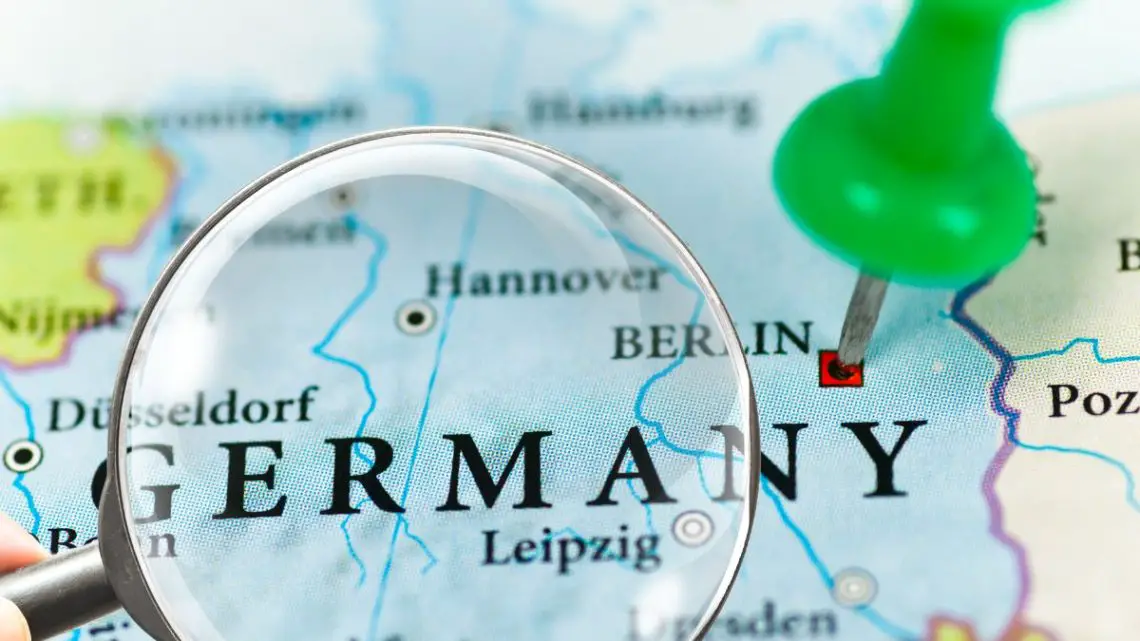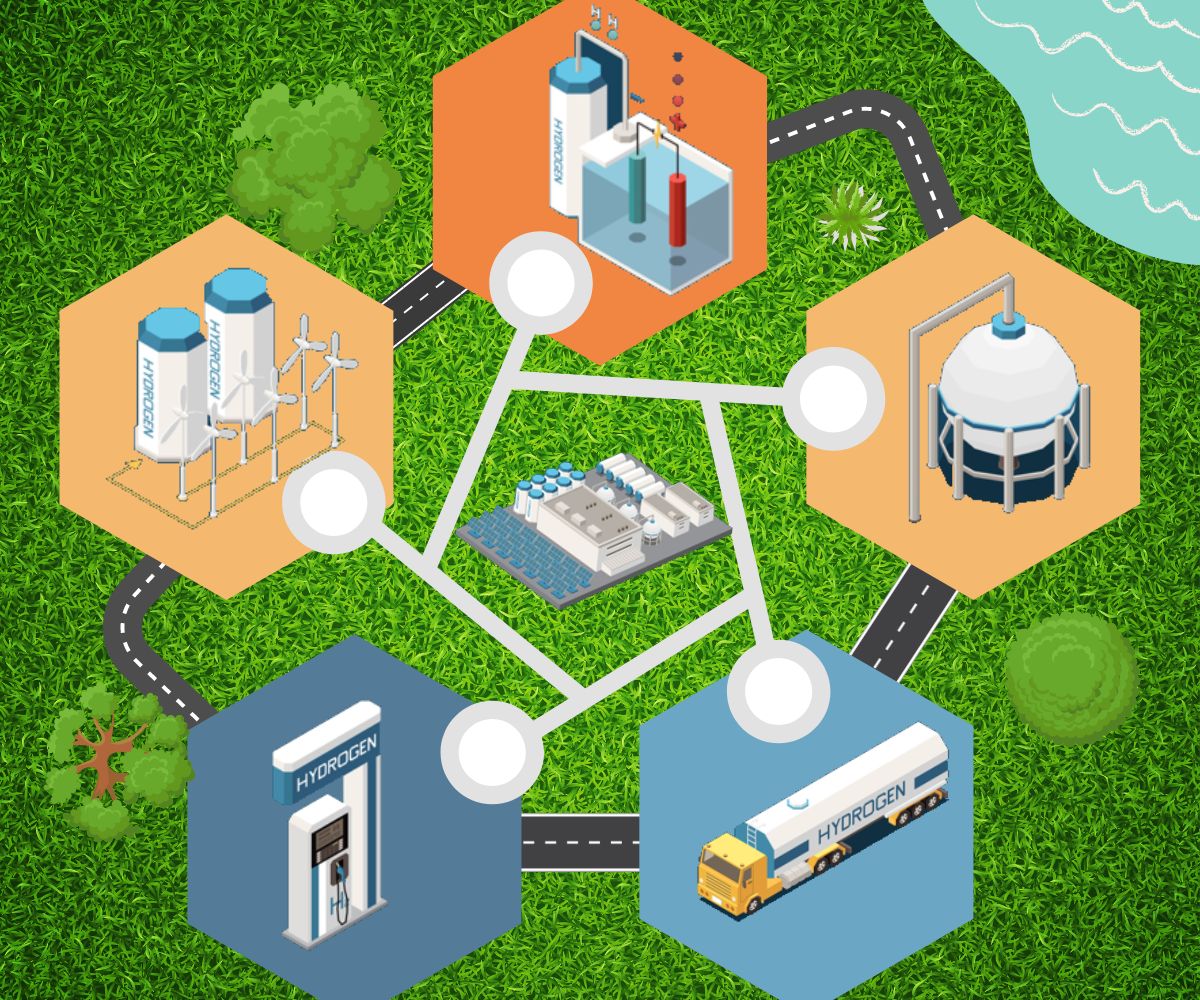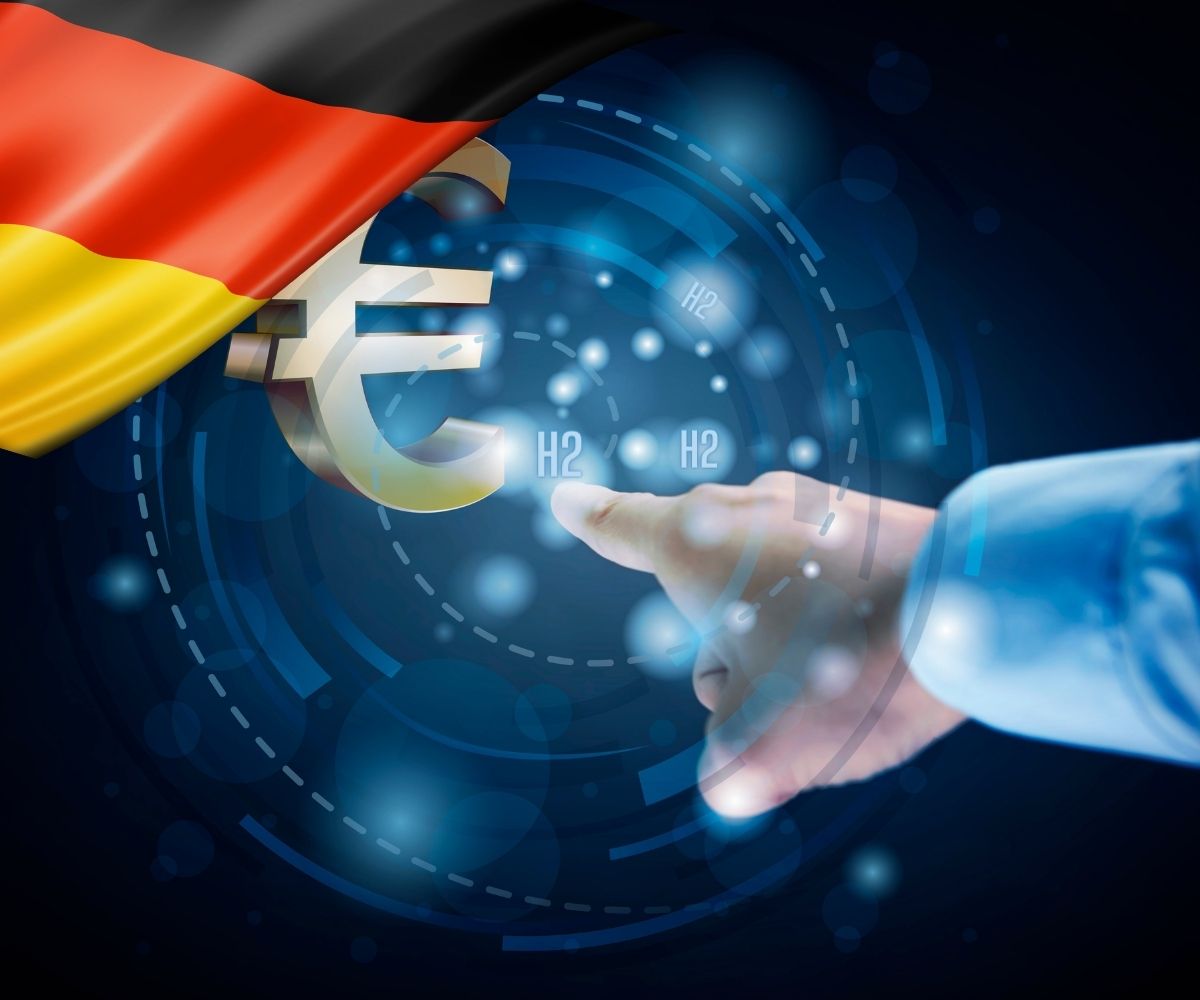
Deutschland: How Germany Is Dominating Hydrogen Market
March 19, 2024With 3827 kilometers of pipeline across the country, Germany is blazing a trail through the continent in terms of hydrogen infrastructure growth.
Indeed, plans within the country are so far advanced that Germany is set to become the biggest importer of hydrogen in Europe and the third biggest in the world, behind global leaders China and Japan.
All this leaves the German transport sector in good stead, with a strong infrastructure supporting clean fuel adoption, while the country transitions towards net zero.
The support for hydrogen adoption is driven by various government incentives, cultural attitudes, and a commitment to a well-developed infrastructure.
Fueling and clean energy expert, Dover Fueling Solutions® (DFS), takes a deeper dive into the German Hydrogen market and explores the enablers that are helping to transform Germany into a clean energy powerhouse.
How is Germany dominating the hydrogen market?
In Summer 2023, the German Government unveiled its hotly anticipated plans to double its green hydrogen production target from 5GW to 10GW by 2030.
The 10GW of electrolyzers are predicted to produce about a million tons of green hydrogen annually. This can help support the country’s industrial applications, such as heavy-duty transport, while also providing wider economic opportunities.
This investment means that Germany is set to boast more hydrogen valleys than any other country in the world by 2033. In comparison, France is expected to sit in second place with four while the UK and the Netherlands are expected to have two apiece. 
A Hydrogen Valley is typically a region encompassing various hydrogen-based activities in one interconnected area. This includes projects that produce, distribute, and use hydrogen, such as production facilities, storage solutions, and transport infrastructure like service stations and hydrogen dispensers.
This would undoubtedly bring massive benefits to Germany and position the country as a world leader in hydrogen power, with the potential to supercharge the economy.
Why is Germany dominating hydrogen?
Germany has established a dominant position in the hydrogen market. But why is this the case, and what are some of the reasons underpinning such large-scale growth?
German business culture
At the heart of Germany’s success with hydrogen-powered transport lies its distinctive business culture.
Worth 457.7 billion euros a year to the German economy, the company’s car manufacturing sector has cultivated a worldwide reputation for innovation and attention to detail.
It’s little surprise the German government has been promoting hydrogen vehicles for years, with many of the major German manufacturers investing in hydrogen as “the” clean fuel source of the future.
BMW, for instance, is aiming for a mass-market passenger car model to be ready for release around 2030. Meanwhile, Audi is similarly assembling a team of 100+ engineers to spearhead its own hydrogen fuel cell research on behalf of the VW Group.
German investment extends beyond its blue-chip companies, with significant investments in research and development opportunities in the Far East. The German government recently poured millions into the production of Toyota’s hydrogen fuel cell vehicle – the Mirai. As a result, Toyota supplied 200 hydrogen-powered Uber taxis to Berlin as part of the two-year pilot project ‘H2 Moves Berlin’.
In addition to this, 5000 hydrogen-powered electric trucks are expected to hit German roads soon, each with an impressive 400km range per filling. Meanwhile, in the public transport arena, the city of Frankfurt is expected to convert its entire bus fleet to hydrogen power by 2030.
Hydrogen Shows – A Showcase for Innovation
Germany’s prominence in leading hydrogen shows and expos further underscores its commitment to advancing hydrogen-powered transport.
These events serve as platforms for showcasing the latest innovations in hydrogen mobility, bringing together manufacturers, researchers, and policymakers from the entire supply chain.
Hydrogen exhibitions in Germany provide a tangible glimpse into the advancements in hydrogen fuel cell technology, fostering collaboration and knowledge exchange.
These shows act as catalysts for partnerships and investments, further propelling the growth of the hydrogen transport sector.
The collaborative spirit witnessed at these events contributes to the continuous refinement and improvement of hydrogen-powered vehicles, solidifying Germany’s position as a global leader in the field.
German Government incentives and infrastructure
In recent years, the German government has signaled a clear shift to hydrogen power by subsidizing businesses as they transition to it.
In total, the government has earmarked $17 billion in subsidies to accelerate the transition to net zero.
To support this, the centers help companies in their development, specifically within the transport sector.
This commitment to infrastructure development is not limited to urban centers but extends to highways, ensuring that hydrogen-powered vehicles can traverse the nation with ease.
The strategic placement of hydrogen refueling stations also complements Germany’s ambitious plans for the future.
The government’s vision involves creating a comprehensive network of hydrogen corridors that facilitate long-distance travel, making hydrogen-powered transport a viable option for a broad spectrum of users.
This infrastructure-focused approach positions Germany as a leader in the practical implementation of hydrogen mobility solutions. It’s clear that Germany is simply more knowledgeable about hydrogen power and in a stronger position to grow.
Cultural attitudes 
On a more sociological level, it’s clear that environmentally conscious attitudes pervade the general population in comparison to many other countries.
According to a recent survey, 38% of Germans chose ‘environmental concerns’ as their top priority for Government versus 31% in the UK, 26% in the Netherlands and 22% in the USA.
When we drill down deeper into the data, we see that German people generally have environmentally friendly attitudes across various areas of life. 37.4% strongly agree that climate neutrality is the most pressing challenge currently facing humanity, while 42.2% completely agree that local provenance is a top priority when buying groceries. Typically, food grown and bought locally will have a lower carbon footprint.
These commonly-held social values can help influence policy on a wider Government level.
Conclusion
While the German government is unquestionably exploring other clean fuel alternatives, it is clear that hydrogen forms an essential part of Germany’s decarbonization mix.
With significant business investment and a firm infrastructure in place, Germany is expected to remain a global leader for many years to come. This is not only to assist its landmark clean energy transition but also as a promising growth market.
FAQs on Germany’s Hydrogen Infrastructure Growth
1. What is the extent of Germany’s hydrogen pipeline? Germany boasts a hydrogen pipeline that stretches for 3827 kilometers across the country, making it a leader in hydrogen infrastructure growth in Europe.
2. How significant is Germany’s role in the global hydrogen market? Germany is set to become the largest importer of hydrogen in Europe and the third largest globally, trailing behind China and Japan.
3. What are Germany’s targets for green hydrogen production by 2030? The German Government plans to double its green hydrogen production target from 5GW to 10GW by 2030.
4. How much green hydrogen does Germany aim to produce annually with the planned capacity? With the planned 10GW of electrolyzers, Germany aims to produce approximately one million tons of green hydrogen annually.
5. What applications will benefit from Germany’s green hydrogen production? The green hydrogen produced will support industrial applications such as heavy-duty transport and provide broader economic opportunities.
6. What is a Hydrogen Valley, and how does Germany rank in this aspect? A Hydrogen Valley is a region that encompasses various interconnected hydrogen-based activities. Germany is set to boast more Hydrogen Valleys than any other country in the world by 2033.
7. How does the automotive industry in Germany tie into the hydrogen economy? Germany’s car manufacturing sector, valued at 457.7 billion euros annually, is innovating with companies like BMW and Audi investing in hydrogen fuel cell research and development.
8. What role do hydrogen-powered vehicles play in Germany’s public and private transport sectors? Germany is investing in hydrogen-powered electric trucks and public transport, with plans such as converting Frankfurt’s entire bus fleet to hydrogen power by 2030.
9. How does the German government support the transition to hydrogen power? The German government has earmarked $17 billion in subsidies to accelerate the transition to net zero and subsidizes businesses transitioning to hydrogen power.
10. What is the strategic vision for hydrogen refueling stations in Germany? The vision involves creating a comprehensive network of hydrogen corridors with strategically placed refueling stations to facilitate long-distance travel and make hydrogen-powered transport viable for a wide user base.
11. How do Germans view environmental concerns in comparison to other countries? According to a recent survey, 38% of Germans chose environmental concerns as their top priority for the government, indicating a higher level of environmental concern compared to the UK, the Netherlands, and the USA.



 HFN News is your leading source for fresh hydrogen and renewable energy updates. Amid the fast-paced growth of hydrogen companies, we provide top-notch news and insights about this exciting sector. Our coverage spans from hydrogen cars to global sustainable initiatives, and we highlight the latest in green jobs and developing hydrogen hubs. We invite you to share your local hydrogen news and explore today’s renewable energy job listings on our site. Thanks for choosing HFN News as your trusted guide to the hydrogen and renewable energy world!
HFN News is your leading source for fresh hydrogen and renewable energy updates. Amid the fast-paced growth of hydrogen companies, we provide top-notch news and insights about this exciting sector. Our coverage spans from hydrogen cars to global sustainable initiatives, and we highlight the latest in green jobs and developing hydrogen hubs. We invite you to share your local hydrogen news and explore today’s renewable energy job listings on our site. Thanks for choosing HFN News as your trusted guide to the hydrogen and renewable energy world!